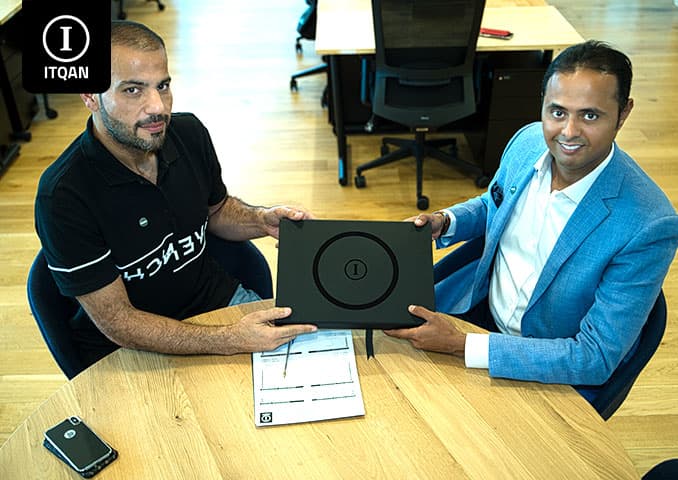Dubai is one of the world’s leading business destinations, providing an advanced investment environment that supports entrepreneurs and investors from all over the world. With its strategic location as a global business hub, modern infrastructure, and flexible legal framework, Dubai has become a prime destination for setting up companies and opening new businesses. The city attracts many investors thanks to the great facilities it offers, such as tax exemptions, multiple free zone options, and easy licensing procedures.
Opening a company in Dubai is not just a business move, it is an opportunity to venture into new markets and benefit from a dynamic business environment. Dubai offers a range of free zones that allow investors to own companies 100%, enhancing the city’s appeal as a global investment hub. The city also offers strong support through financial and logistical facilities, in addition to laws and regulations that encourage growth and innovation.
In this article, we will go through the steps of opening a company in Dubai in detail, starting from choosing the right type of company, through the registration and licensing procedures, to the expected costs and important considerations that must be taken into account. We will also discuss the advantages that Dubai offers as a global investment center, and the opportunities that investors can benefit from when choosing this city as a place to establish their businesses.

جدول المحتوى
ToggleHow to open a company in Dubai
Opening a company in Dubai requires following specific steps to ensure compliance with local laws and regulations. Here is a simple guide to opening a company in Dubai:
- Select the type of company: Choose the type of company you want to establish (such as a limited liability company, a branch company, or a joint stock company).
- Choosing a business name: Choose an appropriate business name for your company and make sure it complies with local laws and is not similar to other company names.
- Company Location: Choose a suitable location for your office, whether in a free zone or a commercial zone. Free zones offer many benefits such as tax exemptions and licensing facilities.
- Document Preparation: Prepare all required documents such as passport, residence visas, and office lease contract.
- Submit a license application: Apply for the appropriate business license from the Department of Economic Development (DED) if you are operating outside the free zones, or from the Free Zones Authority if you are in a free zone.
- Open a bank account: Open a bank account in the company’s name at a local bank. You will need to provide the company’s legal documents.
- Company Registration: Register the company in the commercial registers and obtain a registration certificate.
- Health and Workers’ Insurance: Make sure you comply with health and workers’ insurance requirements for employees.
- Obtaining Visas: Apply for work and residence visas for employees and owners.
- Tax Registration: Register your company with the Federal Tax Authority if your company is subject to Value Added Tax (VAT).
- Starting Operations: After completing all the previous steps, you can officially start operating your company.
Costs of opening a company in Dubai
Opening a company in Dubai can be an exciting option given the dynamic business environment and facilities offered by the UAE. However, the costs of opening a company in Dubai depend on several factors, which can be summarized in the following points:
- Licensing costs: To obtain a business license, you will need to pay fees related to the type of license required, whether it is a general, private, or industrial license.
- Rental Costs: The cost of renting an office varies depending on the location and size of the office. You can choose an office in a free zone or a commercial area.
- Legal fees: Legal fees include costs for legal consultations, contract preparation, and registration with government agencies.
- Service costs: You may need to pay fees for services such as translation, notarization, and banking services.
- Labor: If you intend to hire employees, you will need to account for employment costs, such as salaries and insurance.
- Other arrangements: Other costs may include office furnishing, equipment purchase, and initial marketing costs.
Documents required to open a company in Dubai
To open a company in Dubai, you will need to submit a set of basic papers and documents. The required documents can vary depending on the type of company and where it is established, but in general, they include the following documents:
- Passport: Copy of passport of all shareholders and directors.
- Personal Photographs: Recent personal photographs of both shareholders and directors.
- Visas and Residency: A copy of the investors’ residency visas, if available.
- Lease Agreement: Lease agreement for the office or workspace in Dubai. If you are choosing a free zone, you will need a lease agreement from the free zone’s governing body.
- Certificate of Good Conduct: Certificate of good conduct for investors and managers from local authorities.
- Legal documents: Company incorporation documents such as the articles of incorporation and the articles of association, which define the company’s structure and purposes.
- Trade Name: A list of proposed trade names for the company, which will be reviewed by the competent authorities to ensure that they are not duplicated.
- Additional Documents: Depending on the type of company and the field in which you operate, you may need additional documents such as special licenses or authentication certificates.
- Business Plans: A business plan that outlines a company’s goals, strategies, and market analysis.
- Special Licenses: If the company operates in a sector that requires special licenses (such as healthcare or education), the necessary documents must be submitted to obtain these licenses.
- Personal data for investors: Additional information such as address, marital status, and academic qualifications if required.
Tax benefits of setting up a company in Dubai
Establishing a company in Dubai offers many tax benefits that make it an attractive option for investors and entrepreneurs. Here are the most prominent tax benefits:
- Income Tax Exemption: Dubai offers a complete exemption from corporate income tax, which means that companies do not pay taxes on their annual profits.
- Corporate Tax Exemption: Companies registered in Dubai free zones benefit from a full corporate tax exemption for a renewable period of 15 years.
- No capital gains tax: Dubai does not impose tax on profits from the sale of assets or investments, which enhances the attractiveness of investments.
- VAT exemption in some cases: While a 5% VAT is applied to some goods and services, some activities in the free zones may be exempt from VAT.
- No salary tax: Dubai does not impose taxes on salaries and wages, which reduces operating costs for companies and increases the attractiveness of the work environment.
- Double Tax Avoidance Agreements: Dubai has an extensive network of double tax avoidance agreements with many countries, protecting companies from paying double taxes on the same income.
- Simplified Tax System: Dubai’s tax system is simple and transparent, reducing the complexities of tax compliance and providing a flexible and easy business environment.
- Incentives for investors: Dubai offers additional benefits such as customs incentives and exemptions in some free zones, which enhances the business environment and attracts more investments.
In conclusion, starting a company in Dubai is an inspiring strategic step towards achieving success and growth in a vibrant business environment. With its prime geographical location, advanced infrastructure, and diverse range of free zones, Dubai offers tremendous opportunities for investors from all over the world. Simplified procedures, tax exemptions, and customs facilities make Dubai an attractive destination for setting up businesses, whether small or large.
The process begins with choosing the right type of company and business activity, then submitting the required documents and obtaining the necessary licenses. With a focus on careful planning and a comprehensive understanding of the legal and financial procedures, investors can ensure that their business starts smoothly and efficiently. Hiring local experts or specialized consulting firms, such as Itqan, can have a significant positive impact on speeding up the process and facilitating the handling of legal requirements.
Dubai offers a stimulating business environment thanks to its ability to combine modern technology with advanced services, providing businesses with a strong platform for growth and expansion. Knowing the ins and outs and preparing a solid business plan can lead to success in a competitive market.
Top Frequently Asked Questions About Opening a Company in Dubai
What advantages does Dubai offer to investors?
Dubai offers a vibrant business environment, tax exemptions, customs facilities, advanced infrastructure, and a strategic location.
What types of companies can be established in Dubai?
Limited Liability Companies (LLCs), Sole Proprietorships, Partnerships, and Free Zone Companies.
Can foreigners fully own companies in Dubai?
Yes, in free zones foreigners can own 100% of companies, while in non-free zones a local partner may be required.
What office options are available in Dubai?
Includes small offices, commercial spaces, and warehouses in free and non-free zones.
Can I get work visas for a new company?
Yes, work visas can be issued to founders and employees after completing the company registration procedures.

















